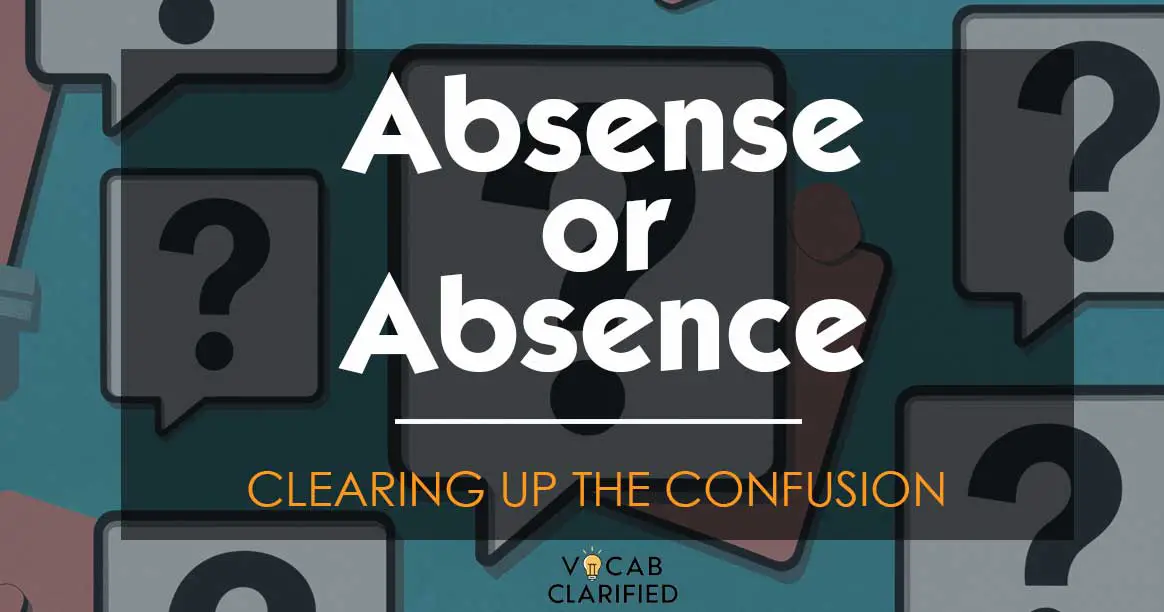Have you ever found yourself hesitating when writing the word “absence”? It’s easy to see why—many people mistakenly write it as “absense,” swapping out the “c” for an “s”. If you’ve ever wondered which one is correct, you’re not alone.
In this article, we’ll break down the difference between “absense” and “absence”, ensuring you never confuse the two again.
Understanding Absense And Absence
Absense: Definition and Usage
“Absense” is not a word in the English language. It’s a common misspelling of “absence”.
While you might see “absense” mistakenly used in informal settings, it’s important to recognize that this version is incorrect and should be avoided in all writing contexts.
Absence: Definition and Usage
“Absence,” on the other hand, is the correct spelling. It refers to the state of being away from a place or not being present.
It can also signify the lack of something, such as a quality, emotion, or condition.
For instance:
- Example 1: Her absence from the meeting was noted by everyone.
- Example 2: The absence of noise in the countryside is refreshing.
Side-by-Side Comparison
| Aspect | Absense | Absence |
| Definition | Incorrect spelling of “absence” | The state of being away or not present; lack of something |
| Common Usage | Not used in proper English | “The absence of evidence is not evidence of absence.” |
| Key Differences | Common typo or misspelling | Correct term used in formal and informal contexts |
When deciding between “absense” and “absence,” it’s clear that “absence” is the correct choice.
The misspelling “absense” should be avoided in all situations, especially in professional or academic writing.
Everyday Usage Examples
To solidify your understanding, here are some examples of how to use “absence” correctly in everyday language:
- Absence from work: Due to illness, John’s absence from the office was unavoidable.
- Absence of evidence: The absence of evidence does not necessarily mean the theory is incorrect.
- Absence of sound: The complete absence of noise in the library made it the perfect study spot.
- Absence of color: The room’s absence of bright colors made it feel dull and lifeless.
- Absence makes the heart grow fonder: The saying goes that absence makes the heart grow fonder, and I found it to be true during my trip away from home.
- Noticing someone’s absence: Her absence at the party was strange, as she rarely misses social gatherings.
Conclusion
In summary, “absence” is the correct spelling, while “absense” is a common mistake that should be avoided.
Understanding this distinction ensures that your writing remains polished and professional. The next time you’re unsure, remember: “absence” is always the right choice.

